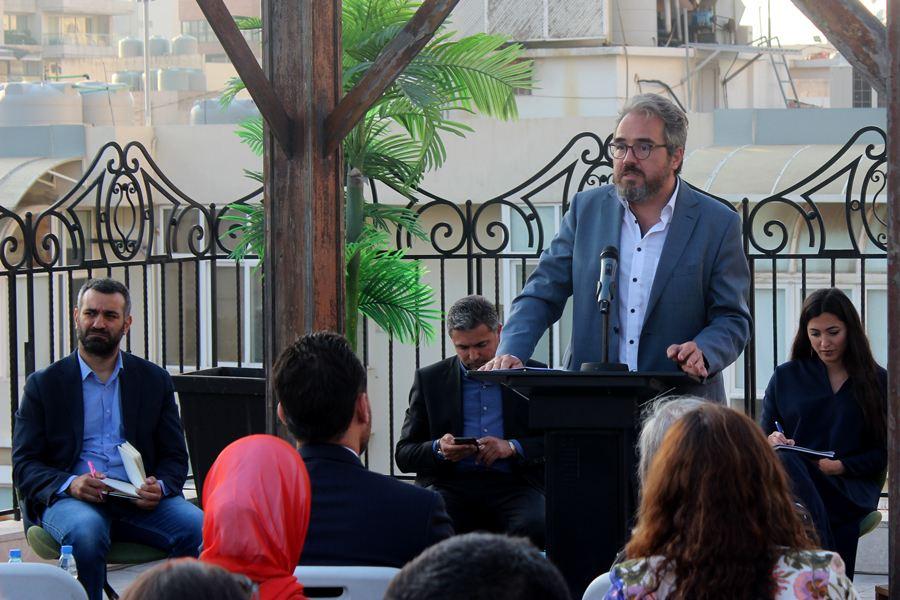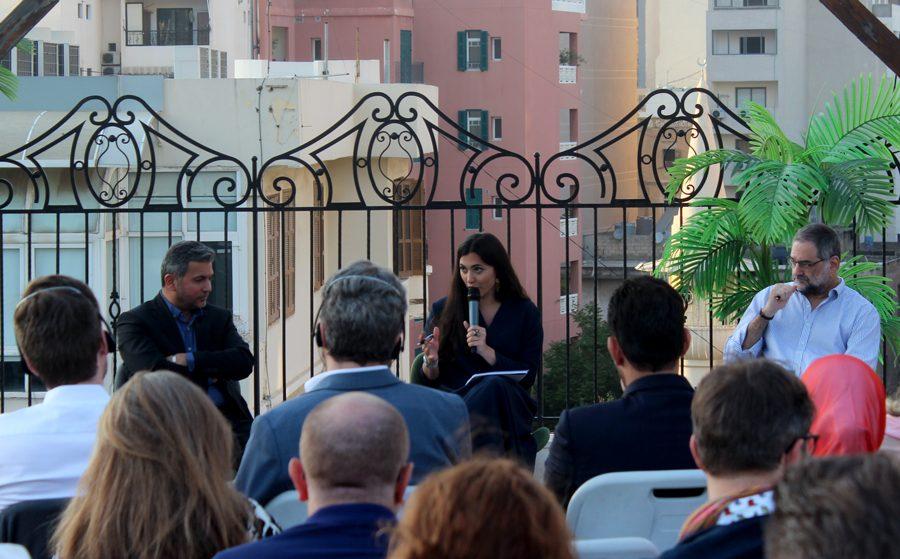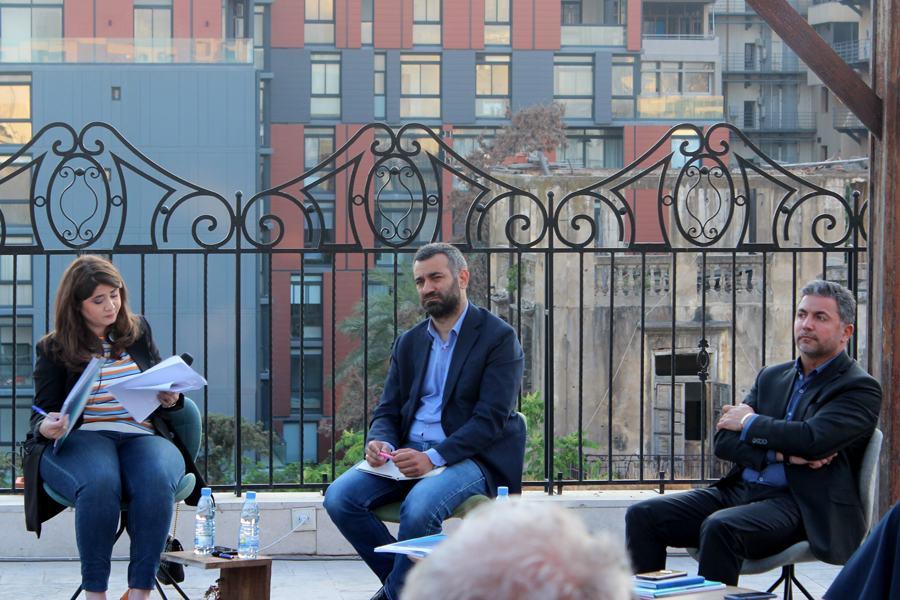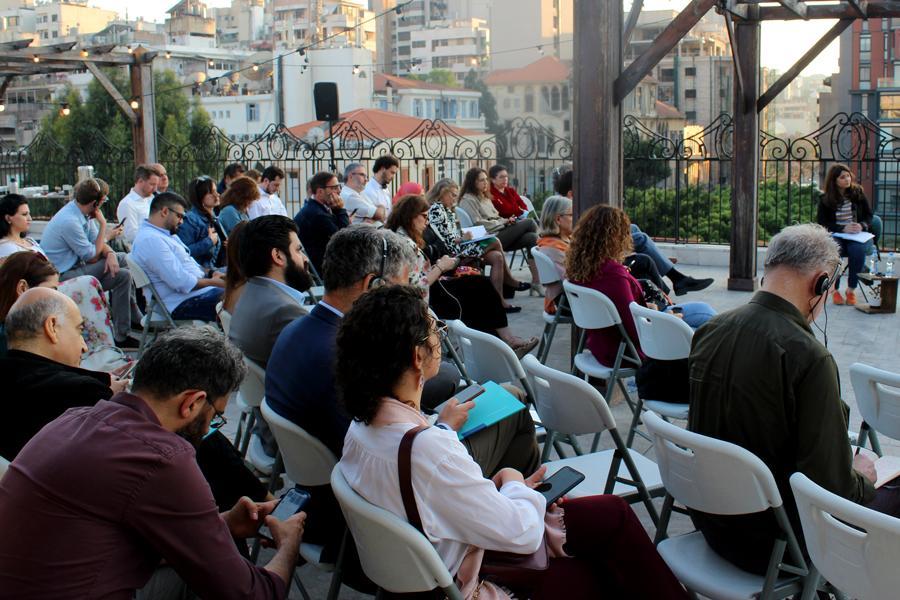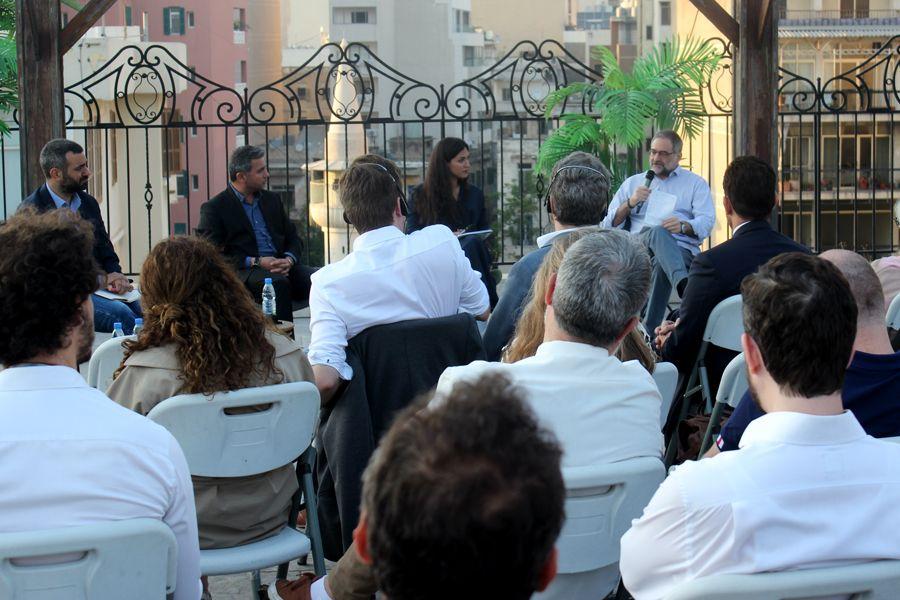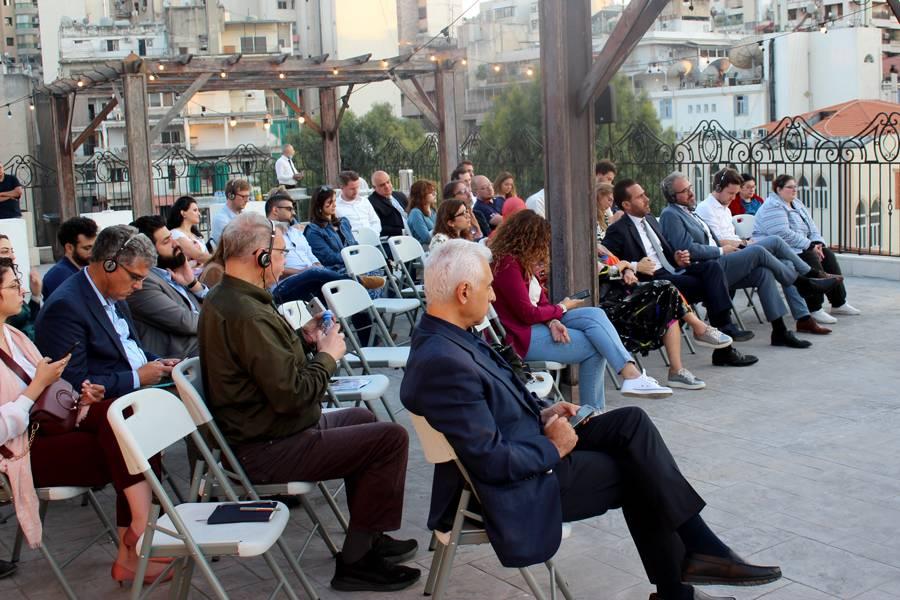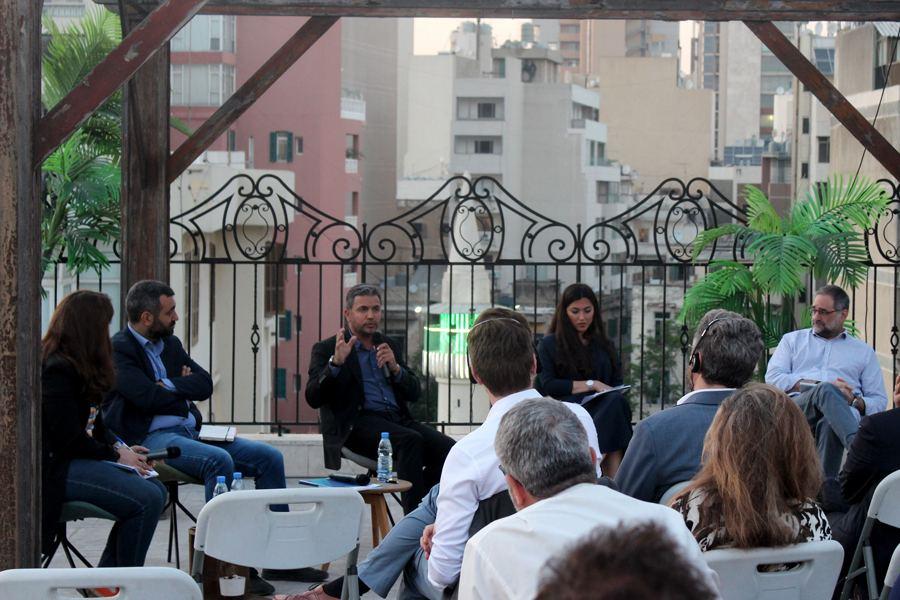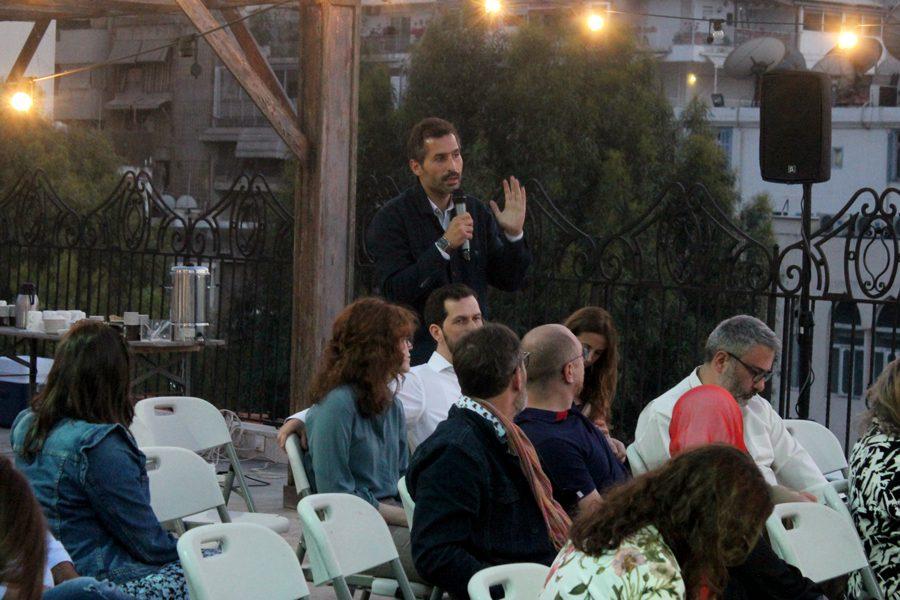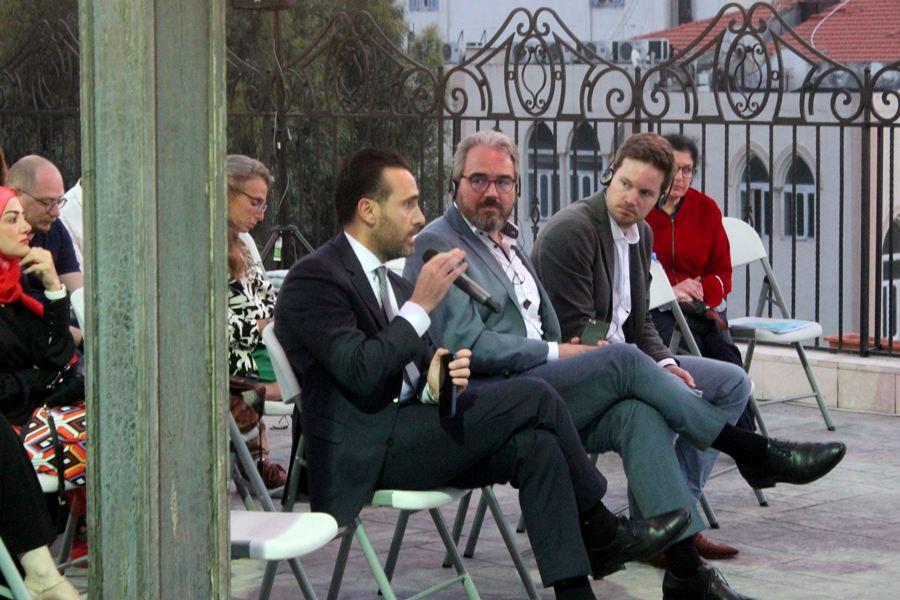A Post-Election Enigma: What awaits the Lebanese after May 15?
Mr. Joseph Bahout, Director of the Issam Fares Institute for Public Policy and International Affairs, Ms. Diana Menhem, Managing Director of " Kulluna Irada", senior economist Mr. Wael Mansour, Mr. Assem Chaya, researcher in electoral systems and laws, and Ms. Halima Tabiaa the moderator who conducted the panel showcased their readings of the parliamentary elections results and commented on the most prominent mishaps in the current proportional electoral system.
The Panelists also addressed the responsibilities held by newly elected parliamentarians, and how to face the crises afflicting Lebanon, particularly on the economic aspect.
Mr. Michael Bauer, Director of the Konrad-Adenauer-Stiftung (KAS)- Lebanon Office initiated the event with a welcoming note and pointed to the positive implications of the elections and stressed on the fact that this election gave the Lebanese people hope.
Mr. Assem Chaya who started the discussion, stated that the current electoral law, which is based on proportionality, was tailored to the benefit of the major political parties, specifically “the pairs” of each sect. He pointed out that one of the most prominent loopholes in this law is the absence of a committee that monitors electoral spending.
In a preliminary reading of the election results, Chaya considered that the election boycott of established parties' supporters contributed to reducing the overall voter turnout.
Ms. Diana Menhem, called on the newly elected MPs representing October 17 uprising and urged them to clarify their positions on key political issues, particularly the economic situation and the sovereign fund.
Menhem indicated that most of the deputies emerging from the October 17 movements, agree, at least on economic issues. She also warned against the Association of Banks of Lebanon (ABL) and conventional authorities attempting to sabotage any future financial strategy.
In his turn, Mr. Joseph Bahout, questioned the current electoral law, notably the single preferential vote mechanism, considering the possibility of having more than one preferential vote. He said: "We apply proportionality in the law, but the people use the majority vote, and the problem is to continue in this way."
He argued that keeping the caretaker administration in place is vital since any discussion about forming a new government considering the existing division in the new parliament, with no decisive majority, would result in a governmental vacuum.
Bahout stressed that the theory of a “strong president” must be abandoned, and that a moderate figure for this role must be found. He continued; a moderate figure would facilitate a genuine dialogue in Lebanon.
According to Mr. Wael Mansour the work program for the next four years will be synchronized according to two rhythms. First, the program with the International Monetary Fund, which terms has been laid down and ought to be followed. Second, a regional deal that will translate in Lebanon through governing arrangements between Hezbollah and the other political groups, in which the change movement should have a voice so that the deal not to come at the expense of the Lebanese people.
On the other hand, Mansour stated that we are approaching a global economic crisis, in which there would be little liquidity to pump into Lebanon, adding that, at most, Lebanon would secure 3 billion dollars from the IMF and maybe some few other investments from other international organizations.
由...提供
Foundation Office Lebanon
关于这个系列
德国康拉德•阿登纳基金会、它的培训机构、教育中心和其国外代表处每年举办数千个不同主题的活动。关于重要国际会议、大事活动、专题讨论会等等的报道我们及时且独家的公布在我们的网页www.kas.de。在这里您除了可看到内容摘要之外,还可看到额外的材料,例如照片、演讲稿、影片或录音。



